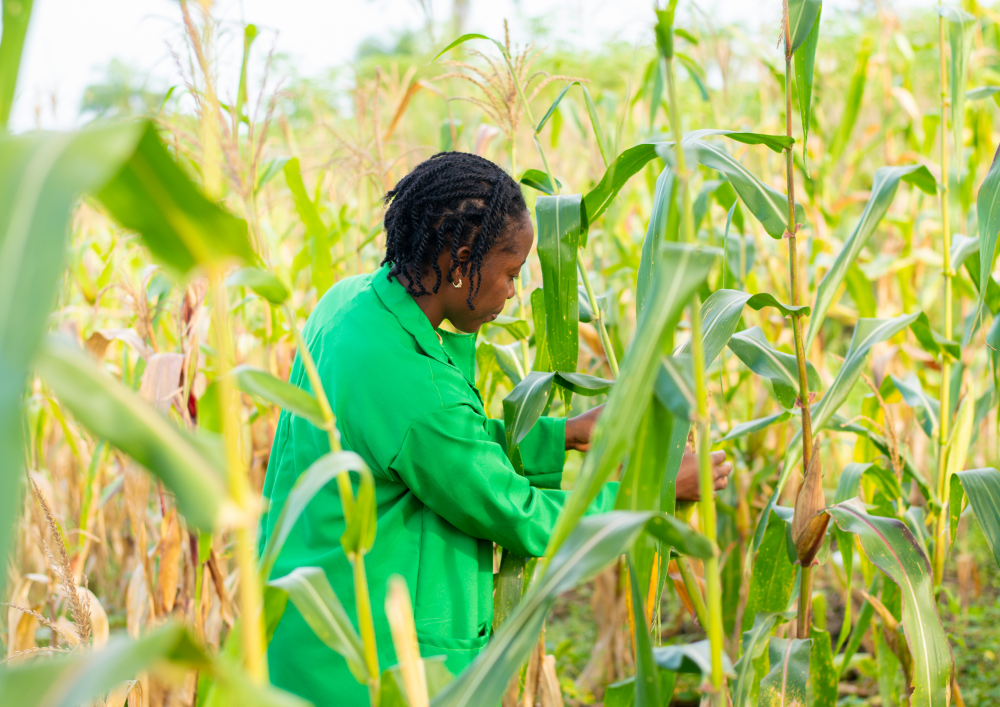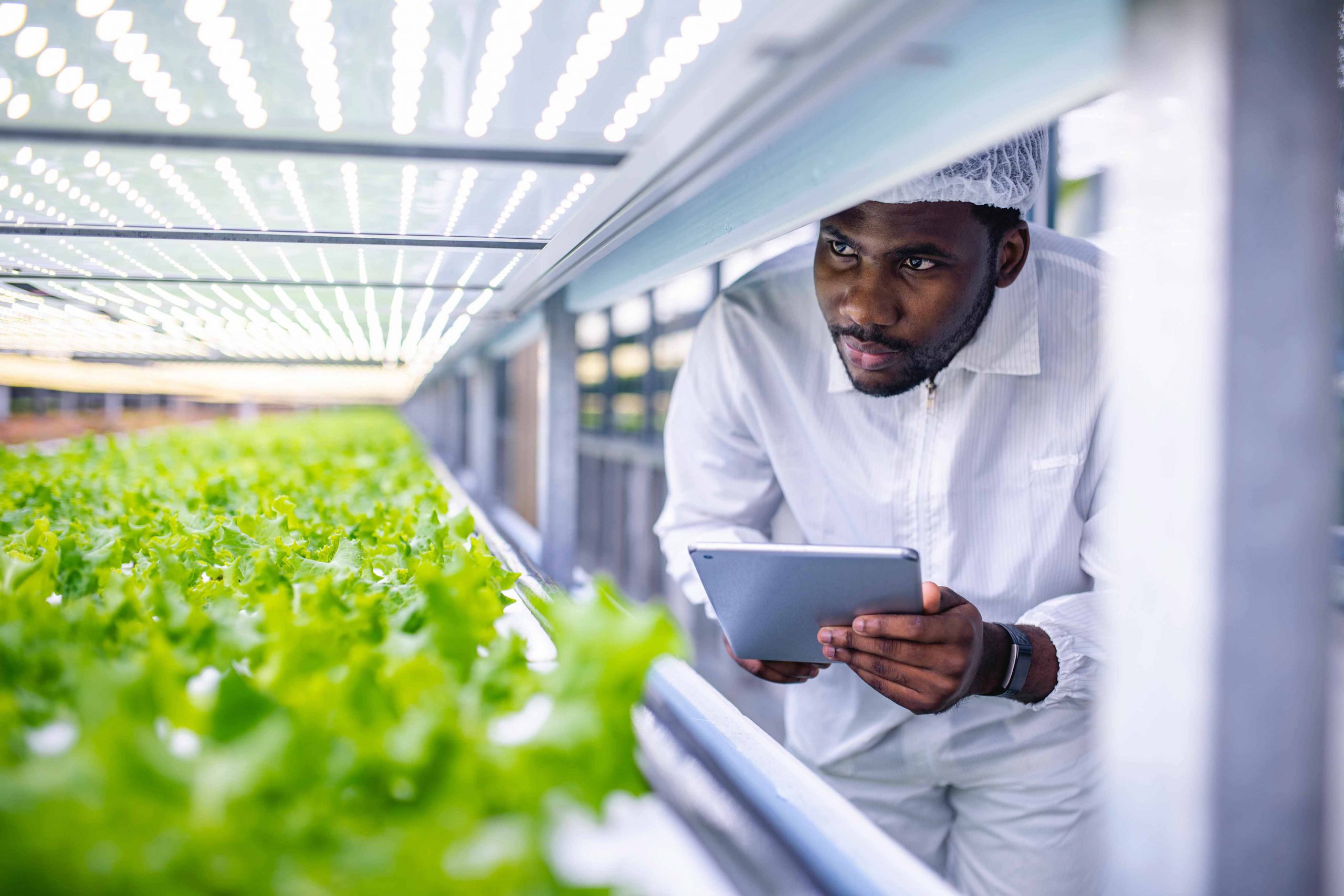How energy innovation can make manufacturing and processing in African AgriFood more efficient and sustainable

The AgriFood sector uses a lot of energy when it comes to manufacturing and processing products. As part of the AgriFood Africa Connect project, we’ve taken a deep dive into how energy innovation can impact AgriFood manufacturing and processing during our January event: Energy innovation for sustainable processing and manufacturing in African AgriFood.
The event brought together more than 150 AgriFood companies and energy focused innovators, from across the UK and Africa. It facilitated powerful connections and encouraged partnerships and collaborations.
Here are four key takeaways from the event.
1. More efficient and sustainable energy supply can help improve AgriFood processing and manufacturing
AgriFood systems consume about 30% of the world’s energy, while energy is responsible for a third of AgriFood systems’ emissions. This statistic highlights that energy is really key to AgriFood operations. When considering innovation to improve the sustainability of AgriFood systems, focusing on innovation around AgriFood and energy systems has the potential to have a powerful impact.
Kilian Blumenthal from the Water and Energy for Food initiative gave a brilliant introduction to this topic, highlighting how energy intensive technologies are used to add value to agricultural products, for example in processing or drying. Fossil fuels are widely relied upon within AgriFood processing, leading to high carbon emissions and often unhealthy operating conditions. Renewable solutions can help offer a reliable energy supply to add value to the AgriFood industry, while reducing carbon emissions, lowering costs and ultimately contributing to job creation and livelihoods. Watch Kilian Blumenthal’s talk about Energy innovation for sustainable processing and manufacturing in African AgriFood.
2. Innovative technologies must focus on adoption by users early on
The importance of innovative technology to support sustainability in AgriFood is clear but strategies must be in place to ensure these technologies deliver impact on the ground. Technologies must be tested, adapted and transferred into real world scenarios with appropriate business models and finance to support adoption.
One initiative looking to address this need focuses on cold chain solutions. Natalia Falagán from Cranfield University spoke about the African Centre for Sustainable Cooling and Cold chain which will support the transfer of technologies into businesses. Watch Natalia Falagán’s talk on the Africa Centre of Excellence for sustainable cooling and cold chain.
3. AgriFood organisations have different motivations to explore energy innovations
For AgriFood organisations there can be multiple motivations to incorporate energy innovation into their businesses. Energy innovations for AgriFood could play a role in reducing carbon emissions, stabilising production where energy supplies are inconsistent or reducing costs.
Fruit processor Blue Skies spoke about their focus on sustainability and their goal of reducing energy consumption by 40% per tonne by 2030. Watch Simon Derrick talk about the sustainability goals of Blue Skies and the technologies and expertise they are looking for.
Equatorial Nut Processing highlighted the high cost of electricity for their business and the impact this has on their operations. Watch Samuel Maina talk about the energy intensive processes they are working to improve and how reducing their energy costs could grow their business.
4. There is a wide choice of innovative technologies that will help solve energy challenges
When it comes to innovative technologies for sustainable processing and manufacture in AgriFood, it’s all about identifying the right technology for a specific application. Collaboration between users and innovators is key, so they can design and develop the best technology possible.
Here are a few of the innovative technologies that we heard about at the event:
AgriFood Processing
When it comes to processing AgriFood products, equipment using renewable or solar energy offers exciting opportunities. Koolmill’s efficient milling system aims to reduce spoilage and ensure high quality milled products. Watch Penny Morton dive into the role Koolmill technologies are playing within the rice industry.
EnSo Impact highlighted their work with large scale solar drying technology within the tea industry in a collaboration with the Kenyan Tea Development Authority and in supporting the production of viable tree seedlings with the Kenya Forestry Research Institute (Kefri). Watch Trevor Rees talk about their approach to making AgriFood systems more sustainable.
Cold storage
Companies including Soko Fresh, Solar polar, and Adili Solar Hubs are ensuring that cold-chain solutions can reduce food loss and maintain or add value to AgriFood products.
Renewable energy production
Renewable sources of energy for AgriFood industries can include solar technologies but can also incorporate circular approaches to manufacture, making use of waste materials and heat. PyroGenesys use waste biomass to deliver power and heat for industry. Other exhibitors with innovative routes to energy production included Ariya Finenergy, Leap Micro AD and Reheat. Watch Simon Ighofose from PyroGenesys speak about their biomass systems.
If you are an AgriFood company in Africa looking to make your energy more efficient and sustainable, we can connect you with organisations who are working on innovative solutions.
If you are working on an innovative technology around energy, we can help you fast-track your innovation.
Get in touch with Debbie Tully to find out how we can support you.
Related Events and Recordings
Thu
20
Jan
2022
Energy innovation for sustainable processing and manufacturing in African AgriFood
09.30 - 12.00 | Online
Watch Now
Related programmes

AgriFood Africa Connect Map
The AgriFood Africa Connect Map makes it easier for UK and African organisations to collaborate on projects, provides information on the AgriFood sector across Africa, and helps connect innovators to enable collaboration and address key global challenges.

AgriFood Africa Connect
Innovate UK AgriFood Africa Connect brought innovative people and organisations across the UK and Africa together to develop solutions for the sustainable management of AgriFood systems in Africa.




